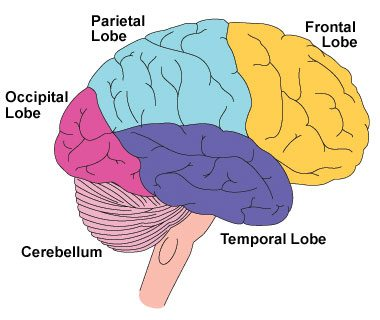Frontal lobe disorder
(Redirected from Frontal lobe syndrome)
Editor-In-Chief: Prab R Tumpati, MD
Obesity, Sleep & Internal medicine
Founder, WikiMD Wellnesspedia &
W8MD medical weight loss NYC and sleep center NYC
| Frontal lobe disorder | |
|---|---|

| |
| Synonyms | N/A |
| Pronounce | N/A |
| Specialty | N/A |
| Symptoms | Personality changes, difficulty concentrating, impulsivity, impaired judgment, motor skill issues |
| Complications | Social dysfunction, occupational difficulties, legal issues |
| Onset | Varies depending on cause |
| Duration | Chronic |
| Types | Traumatic brain injury, stroke, tumor, neurodegenerative disease |
| Causes | Head injury, cerebrovascular accident, brain tumor, dementia |
| Risks | Age, family history, substance abuse, hypertension |
| Diagnosis | Neuropsychological testing, brain imaging (MRI, CT scan) |
| Differential diagnosis | Bipolar disorder, schizophrenia, ADHD, depression |
| Prevention | Safety measures, healthy lifestyle, regular check-ups |
| Treatment | Medication, therapy, rehabilitation |
| Medication | N/A |
| Prognosis | Varies; depends on cause and treatment |
| Frequency | Common in elderly and those with head trauma |
| Deaths | N/A |
Frontal lobe disorder refers to a range of conditions that affect the frontal lobe of the brain, which is responsible for a wide variety of functions, including voluntary movement, language, and the management of reward, attention, problem-solving, and social behavior. Disorders of the frontal lobe can significantly impact an individual's cognitive, emotional, and behavioral capacities.
Causes[edit | edit source]
Frontal lobe disorders can be caused by a variety of factors, including traumatic brain injury (TBI), stroke, tumors, neurodegenerative diseases such as Parkinson's disease and Alzheimer's disease, and infections. Genetic factors may also play a role in the development of certain conditions affecting the frontal lobe.
Symptoms[edit | edit source]
Symptoms of frontal lobe disorders can vary widely depending on the specific area of the frontal lobe affected and the severity of the damage. Common symptoms include changes in personality and behavior, impulsivity, difficulty in planning and organizing, problems with attention and concentration, and difficulties with language and communication. Physical symptoms may include weakness or paralysis of parts of the body, particularly on one side.
Diagnosis[edit | edit source]
Diagnosis of frontal lobe disorders typically involves a comprehensive neurological examination, including assessment of cognitive functions and physical abilities. Imaging tests such as MRI or CT scans are often used to identify the location and extent of damage to the frontal lobe. Neuropsychological tests may also be conducted to evaluate the impact of the disorder on cognitive functions.
Treatment[edit | edit source]
Treatment for frontal lobe disorders depends on the underlying cause. In cases where a tumor or infection is present, surgery or antibiotics may be necessary. Neurorehabilitation, including physical therapy, occupational therapy, and speech therapy, can help individuals regain lost functions or learn compensatory strategies. Medications may be prescribed to manage symptoms such as mood swings, aggression, or impulsivity.
Prognosis[edit | edit source]
The prognosis for individuals with frontal lobe disorders varies widely depending on the cause and severity of the condition. Some individuals may experience significant improvement with treatment, while others may have persistent symptoms that require long-term management.
See also[edit | edit source]
Search WikiMD
Ad.Tired of being Overweight? Try W8MD's physician weight loss program.
Semaglutide (Ozempic / Wegovy and Tirzepatide (Mounjaro / Zepbound) available.
Advertise on WikiMD
|
WikiMD's Wellness Encyclopedia |
| Let Food Be Thy Medicine Medicine Thy Food - Hippocrates |
Translate this page: - East Asian
中文,
日本,
한국어,
South Asian
हिन्दी,
தமிழ்,
తెలుగు,
Urdu,
ಕನ್ನಡ,
Southeast Asian
Indonesian,
Vietnamese,
Thai,
မြန်မာဘာသာ,
বাংলা
European
español,
Deutsch,
français,
Greek,
português do Brasil,
polski,
română,
русский,
Nederlands,
norsk,
svenska,
suomi,
Italian
Middle Eastern & African
عربى,
Turkish,
Persian,
Hebrew,
Afrikaans,
isiZulu,
Kiswahili,
Other
Bulgarian,
Hungarian,
Czech,
Swedish,
മലയാളം,
मराठी,
ਪੰਜਾਬੀ,
ગુજરાતી,
Portuguese,
Ukrainian
Medical Disclaimer: WikiMD is not a substitute for professional medical advice. The information on WikiMD is provided as an information resource only, may be incorrect, outdated or misleading, and is not to be used or relied on for any diagnostic or treatment purposes. Please consult your health care provider before making any healthcare decisions or for guidance about a specific medical condition. WikiMD expressly disclaims responsibility, and shall have no liability, for any damages, loss, injury, or liability whatsoever suffered as a result of your reliance on the information contained in this site. By visiting this site you agree to the foregoing terms and conditions, which may from time to time be changed or supplemented by WikiMD. If you do not agree to the foregoing terms and conditions, you should not enter or use this site. See full disclaimer.
Credits:Most images are courtesy of Wikimedia commons, and templates, categories Wikipedia, licensed under CC BY SA or similar.
Contributors: Prab R. Tumpati, MD



